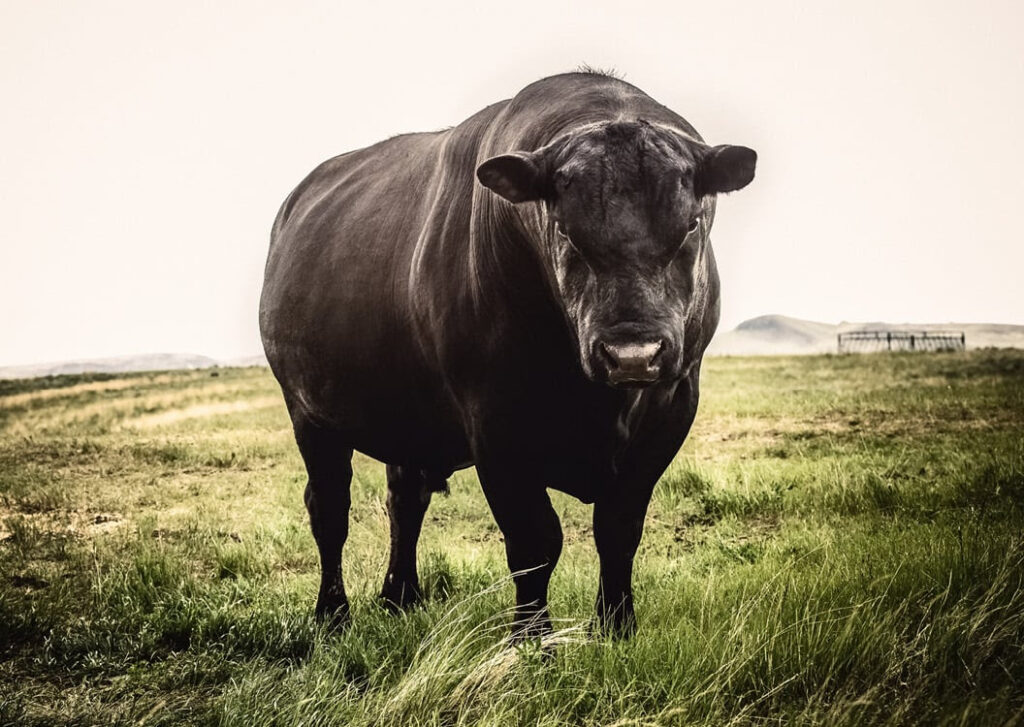Originally published on May 22, 2024 on Farmtario
By Roy Lewis
Herd bulls can be forgotten at times but attention turns to them just before the breeding season.
Bulls can be hard to handle, but there are good facilities for examining and treating them.
Bulls should be vaccinated for most things you give to cows, with the exception of scours vaccines. Deworming and lice control should always be considered, since bulls get the highest load of flies in summer.
When handling bulls, get the best bang for your effort. Do as many procedures at once as you can, that your veterinarian recommends. Have the bulls semen tested to remove infertile ones and identify marginal ones.
Most producers in Canada manage bull health very well, in my opinion. Some go the extra mile and vaccinate against foot rot and attend to foot care such as trimming when necessary. There are also preventive things we can do against injuries caused by breeding, other bulls or during processing or transport. Lameness and injuries likely take out more bulls every year than lack of fertility.
Nothing frustrates me more than unnecessary injuries to bulls. It happens a lot when they are introduced or reintroduced to one another, and when transported together in trailers.
Bull pens must be big enough for animals to get away from one another. Every time we move them, fighting can start. If we are diligent about reintroductions or mixing, we can keep injuries to a minimum.
I may write an article about keeping bulls occupied and busy to decrease fighting. In the zoo world, it is called enrichment, and I’ve seen it used to some degree in purebred breeder bull pens.
We need to take advantage when disrupting the whole pen, which is a good time to do new introductions so the animals can blend into the group. There should be lots of space and distractions like big rocks, brushes or oilers. Ideally, bulls would be put in a field in the off season where they get lots of exercise.
Some producers have tried spraying vinegar on bulls’ backs (usually a couple ounces) with a spray bottle or applicator gun, to make them all smell the same. This can also work when putting bulls from different pens in the same compartment of a trailer.
If transporting any bull, and especially herd bulls, those not used to each other should be hauled in a different compartment. Serious injuries can occur when one bull can’t get away and is hammered into an immovable object like the inside of a trailer. Always try to separate bulls when transporting and use multi-compartment trailers.
Bulls introduced to breeding groups for the first time will spend a few days sparring rather than breeding cows. I prefer to run different ages of bulls together so the propensity to fight is averted because of the big size difference.
The same tendencies are seen in bison breeding bulls. Until they become dominant, they will breed very few cows except on the periphery. Smaller breeding groups with fewer bulls usually results in less fighting.
The worst breeding wrecks occur in single sire mating or when the dominant bull is infertile. This is where semen evaluation is critical. Observation is also needed to identify inability to breed, lack of libido or penile injuries.
Sparring and fighting injuries can quickly take a bull out of commission with damage to feet, broken legs and ribs. Some bulls that become poor performers have scarring, peritonitis or foot and leg injuries involving bones, tendons and joints.
Sound bulls are needed to get the job done in the finite breeding season. If you find an injured bull, act quickly. Pulling it is best, to let it convalesce and receive treatment, sometimes involving little more than NSAID drugs on prescription from your veterinarian.
Sound feet and legs are a necessity when starting the breeding season. Any necessary foot care should be done well in advance. Some conditions are treatable but sometimes a replacement bull necessary. Your veterinarian can give a prognosis and advise on whether to treat, ship or butcher.
Semen can be collected from really valuable bulls to preserve their genetics. If the bulls are insured, those avenues can be explored with the insurance company.
I recommend that producers buy bulls from reputable purebred breeders (virgin bulls) to eliminate risk of venereal diseases and ensure they have a satisfactory semen evaluation.
Let’s do all we can to avoid bull injury from fighting and increase the breeding future of herd sires.
Roy Lewis practised large-animal veterinary medicine for more than 30 years and now works part time as a technical services veterinarian for Merck Animal Health.
